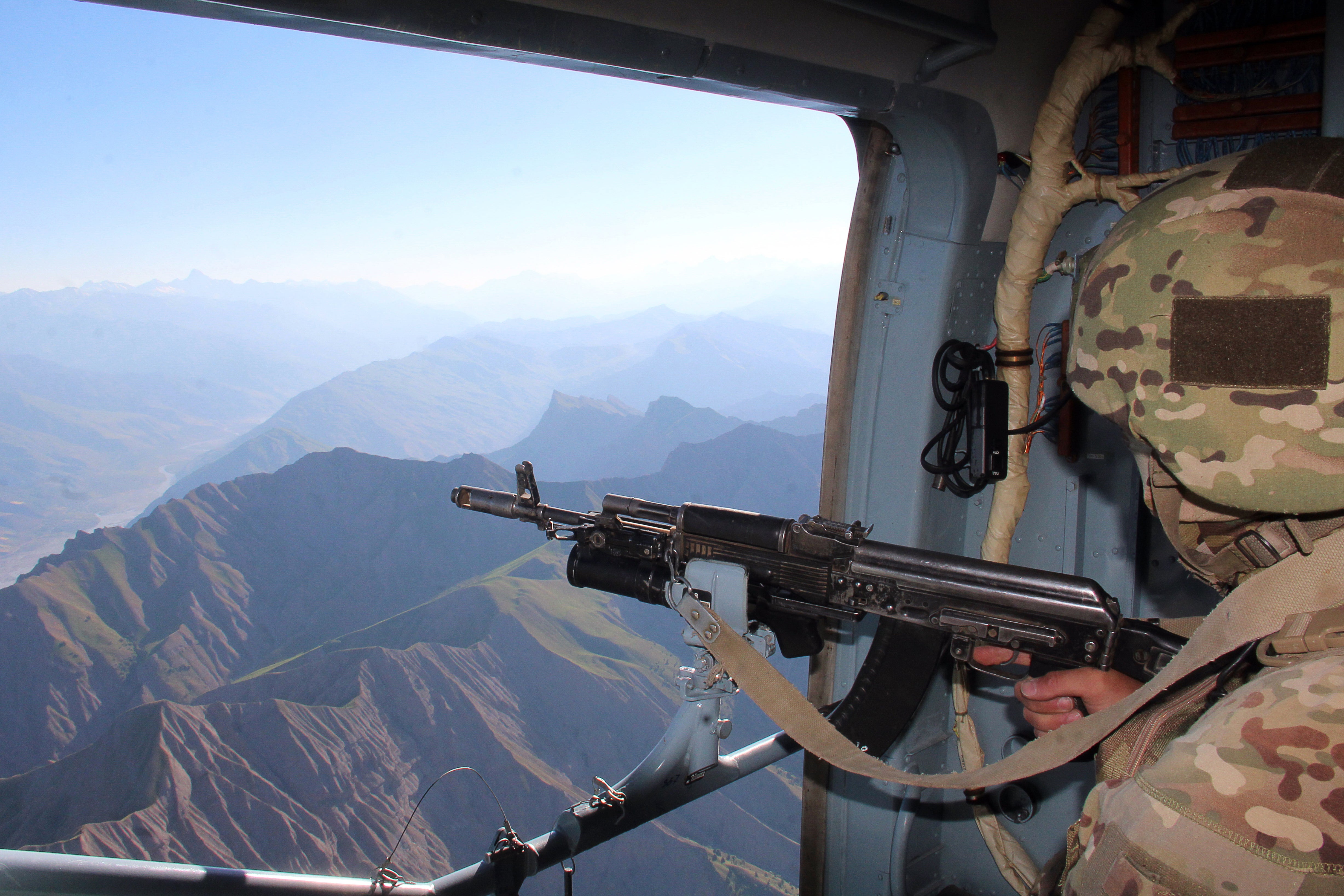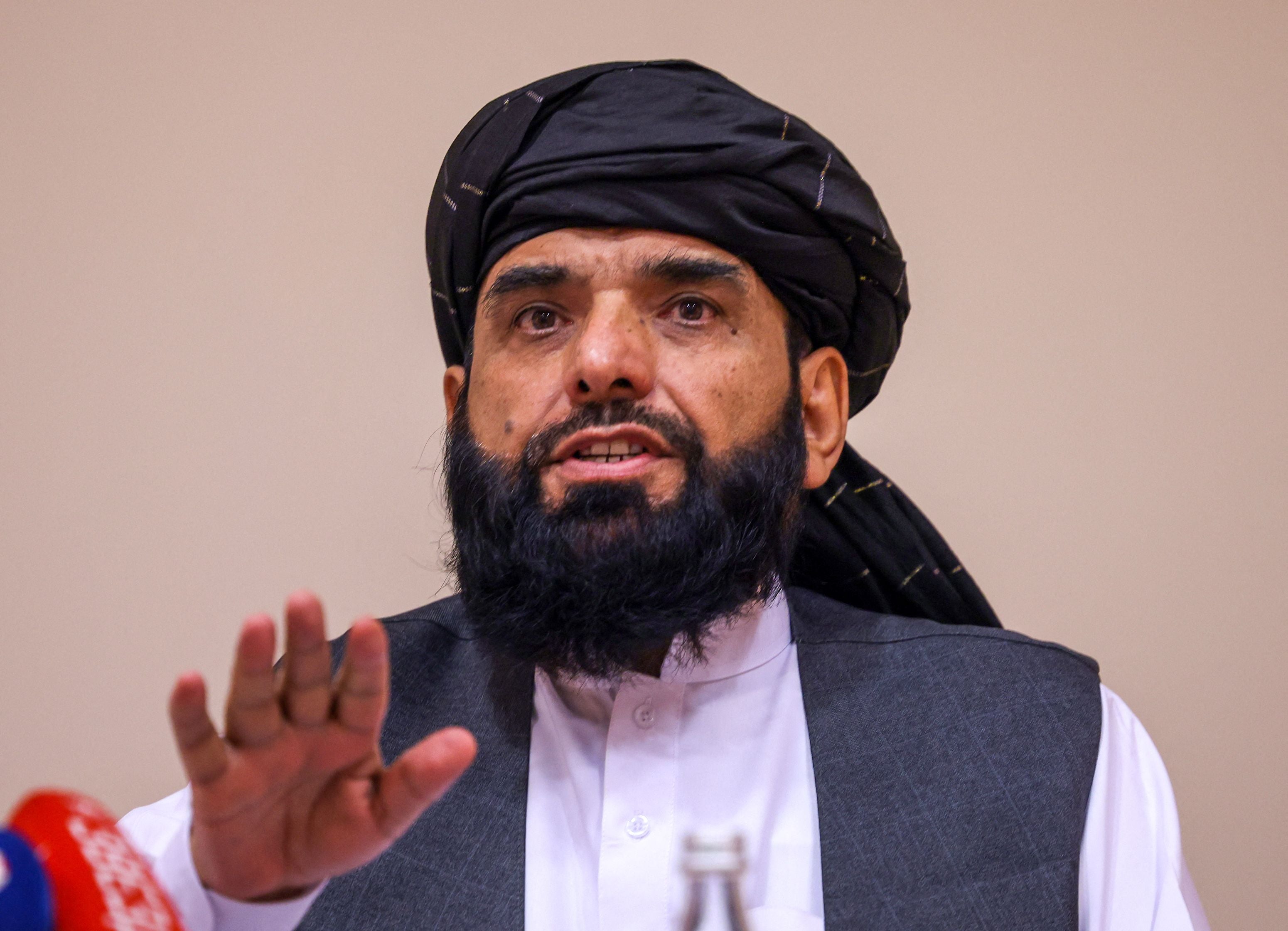UK at risk of terror attacks launched from Afghanistan after troop withdrawal, warns MI5
The spy chief also said MI5 remain vigilant on the situation in Northern Ireland

The withdrawal of international forces from Afghanistan risks the country being used as base by Islamist extremists to plan and carry out murderous attacks abroad including on Britain, the head of MI5 has warned.
Ken McCallum stated that ungoverned spaces can be created in the lawless aftermath of the pull-out allowing terrorist training camps to be set-up , as had happened in the past, and that threat is being taken extremely seriously.
Mr McCallum said the security and intelligence agencies were fully aware of the possibility that British Muslims might travel to Afghanistan via Pakistan to go to these training camps and return to carry out attacks.
Jihadist groups, he said, will also seek to portray the withdrawal of forces as a propaganda victory to try to carry out recruitment and also to “inspire” shooting and bombing by indoctrinated individuals”.
“As we near the twentieth anniversary of 9/11, we’re still contending with large volumes of risk...often coming at us faster and more unpredictably,” said Mr McCallum. “Every week the police and I brief the home secretary on the most immediate threats to lives we are dealing with; it requires constant vigilance.”
The director-general of the Security Service wanted to stress that two decades of American, British and other western military presence broken much of the infrastructure of al-Qaeda and other extremist groups.
We clearly do have to grapple with the reality that that some extremists will try to rebuild from the current situation
But, he continued: “As US and Nato forces now withdraw, terrorists will seek to take advantage of opportunities – including propaganda opportunities – to rebuild. As we seek to illuminate potential threats and take disruptive action, we will have neither the advantage nor the risks of having our own forces on the ground.”
Speaking at MI5’s Thames House headquarters in London, Mr McCallum cautioned against sweeping predictions of what may unfold in Afghanistan. However, he acknowledged: “Terrorist groups will often seek to make use of ungoverned space to advance their agenda. If pockets of ungoverned space open up, then some terrorist groups can establish training facilities as we have seen in the past.
“It does not automatically follow that they would build from there to direct terrorist attacks against the UK, but it is clearly a possibility which we must allow and take into account.”
On the issue of British nationals travelling to Afghanistan for training, Mr McCallum reiterated that terrorist facilities there had been much reduced from what western forces found when they intervened in 2001 following the 9/11 attacks.
“But we clearly do have to grapple with the reality that that some extremists will try to rebuild from the current situation,” the director-general said. Recalling Afghan linked violence from the past, he commented “this is something which has marked part of my career. The travelling of UK-based extremists to south Asia, Pakistan or Afghanistan, gave rise to some very sharp risks and some horrible tragedies in the UK, and this is not something which is taken lightly in any way, shape or form.”
In the light of the dangers faced, efforts will continue in Afghanistan to combat extremism without having boots on the ground. “This form of counter terrorism is not new to us. it is how we have always operated, in Somalia for instance, but from that experience we know it is challenging.”
Mr McCallum accepted however, that al-Shabaab are not in the government in Mogadishu. The Taliban, factions of which have links with al-Qaeda and Isis, may form the government in Kabul in the future, following a military or political victory.

Speaking on the day that the government announced its intention to end all prosecutions, British forces and paramilitaries, related to The Troubles, Mr McCallum, who had started his work with MI5 in Northern Ireland, said, “Many of the powerful aspirations of the Belfast Agreement remain unfulfilled and the legacy of the past casts a long shadow.
“For MI5’s part, we remain vigilant, working with partners both to pre-empt specific plots and to keep grinding away at the underlying capabilities of terrorist organisations.”
But, he added: “The Belfast Agreement stands as one of the greatest public policy achievements of my lifetime. It has enabled a whole generation to grow up substantially free of the scarring which haunted previous generations. These are deep shifts which make a return to Troubles-scale terrorism highly unlikely.”
Describing the range of threats faced in the UK, Mr McCallum repeated previous warnings about the rise of right-wing terrorism, pointing out that of the 29 plots disrupted at a late stage last year, ten had racist and neo-fascist connections.
Much of this extremism is spawned online, said Mr McCallum.
There were no specific acts of serious violence linked, as yet, to the racist outpouring directed at England footballers Bukayo Saka, Marcus Rashford and Jadon Sancho after the Euro 2020 final, and he stated: “Racism is a toxic issue that we confront every day, most notably to deal with extreme racism.
“Always there is the online environment, with thousands exchanging hate filled rhetoric or claiming violent aspirations to impress each other in an extremist echo chamber, leaving us to try and determine which individuals among those thousands might actually mobilise towards violence.”
Worrying characteristics in the right-wing threat include the high percentage of teenagers, one of them arrested was just 13 years old, said the director-general, as well as obsessive interest in weaponry with attempts, at times, to assemble explosive devices and firearms online.
Speaking of his reaction to the abuse of the England players, Mr McCallum said: “As I watched the penalty shootout on Sunday night, I was very aware that I’ve got experience – MI5 has experience – of watching capable, brave young people of all races giving their all for their country.
“Even for a Scotsman there’s a great deal to like in this English team. You don’t always win. But I admired the attempt. And there was so much to admire in how that England team played and how they conducted themselves that I earnestly cheered them on – except for the 90 minutes against Scotland of course.”
Join our commenting forum
Join thought-provoking conversations, follow other Independent readers and see their replies
Comments
Bookmark popover
Removed from bookmarks